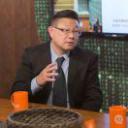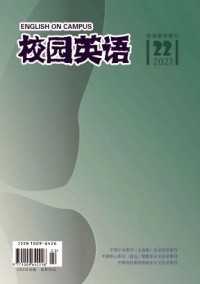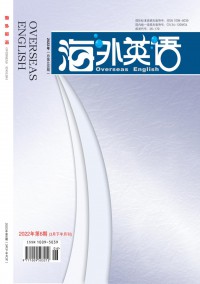英语语态用法管理
前言:本站为你精心整理了英语语态用法管理范文,希望能为你的创作提供参考价值,我们的客服老师可以帮助你提供个性化的参考范文,欢迎咨询。

一.何时使用被动语态
1.不知道谁是动作的执行者或没有必要
如:Paperismadefromwood.
Thehouseisquiteold.Itwasbuiltin1950.
Hewaswoundedinthefight.
2.需要强调动作的承受者时
如:Calwlatorcan''''tbeusedinthemathsexam.
Booksandnewspapersinthereadingroommustn''''tbetakenaway.
Hewasawardedfirstprizeinthatcontest.
3为了使语气婉转,避免提及自己或对方而使用被动语态,或由于修饰的需要,使用被动语态,使句子得以更好的安排。
如:Theconstructionofthenewlabmustbecompletedbytheendofnextmonth.
Electricityisusedtorunmachines.
二.被动语态的构成
1.be+done可以是被动语态,也可以是系表结构形式。被动语态中,done可以带by短语,而系表结构中done相当于adj.不带by短语。
如:Thequestionissettled.(系表结构)
Suchquestionsaresettledbyus.(被动语态)
Thecompositioniswellwritten.(系表结构)
Thecompositioniswrittenwithgreatcare.(被动语态)
Thejobwaswelldone.(系表结构)
Thejobwaswelldonebyaskilledworker.(被动语态)
2.许多verbs(broken,interested,shut,worried),既可以用做adj.也可以在被动语态结构中做过去分词。句中如果有by,通常是被动语态。
如:Iwasworriedabeutyouallnight.(表状态)
Iwasworriedbymosquitoesallnight.(表动作)
TheglasswasbrokenbyJack.(表动作)
Theglassisbroken.(表状态)
Iwasfrightenedbyhisghoststory.
Shewasfrightenedatthesightofasnake.
三.不同形式的被动语态
1.含有直宾和间宾的主动结构,变为被动时,可将其中一个宾语变为主语,另一个不动一般是主语结构的间接宾语变为被动的主语。
如:Heshowedmehispictures.
Iwasshownhispicturesbyhim.
Hispictureswereshowntomebyhim.
Auntmademeanewdress.
Iwasmadeanewdressbyaunt.
Anewdresswasmadeformebyaunt.
Hesentmeabirthdaypresent.
Iwassentabirthdaypresentbyhim.
Abirthdaypresentwassenttomebyhim.
2含有复合宾语的主动句,宾补不变。
(1)将宾语变为主语,宾补不变。
如:TheycallherXiaoLi.SheiscalledXiaoLi.
Heleftthedooropen.Thedoorwarleftopenbyhim.
(2)make,let,have,hear,watch,see,feel,notice.help既动词后变做宾补的不定式一般不加to,变为被动,必须加to.
如:MybrotheroftenmademedothisandthatwhenIwasyoung.
IwasoftenmadetodothisandthatbymybrotherwhenIyoung.
Iheardhermoveaboutinherroomupstairslastnight.
Shewasheardtomoveaboutinherroomuptairslastnight.
DidyouseeJacktakeawaythemagazine?
WasJackseentotakeawaythemagazine?
3.情态动词的被动语态。是由情态V+be+p.p.构成
如:Theycannotfindhim.
Hecannotbefound.
Youmustpaymeforthis.
Imustbepaidforthis.
Hecanrepairyourwatch.
Yourwatchcanberepaired.
4.短语V的被动语态
一般来讲,只有及物V才有被动语态,因为只有vt才能有动作的承受者;但有许多由不及物动词+介词及其他词类构成的短语动词,相当与及物动词,可以有宾语。因而可以有被动语态,但应注意短语V是一个不可分割的整体。变被动时,不可丢掉构成短语的prep或adv.这样的短语有:lookafter,listento,lookat,payattentionto,takecareof,lookforwardto,makeuesof,etc.
如:Theyhadputoutthefirebeforethefire--brigadearrived.
Thefirehadbeenputoutbeforethefire-brigadearrived.
Theywillsetupanewpublicschoolhere.
Anewpublicschoolwillbesetuphere.
5.有些动词用主动形式表被动含义。.
如:Thegoodssellswell.Thedoorcan''''topen.
6.有些词如want,need,require和beworth后面,v-ing形式为主动,意义为被动。
如:Theroomneeds/wants/requirescleaning.
Thebookisworthreading.
7.主动语态中的宾语是从句,变成被动时使用形式替代词it.
如:WeknowthatBritainisanislandcountry.
It''''sknownthatBritainisanislandcountry.
Theteachersaidthatthisbookhasbeentranslatedintoseverallanguages
It''''ssaidthatthisbookhasbeenfranslatedintoseverallanguages
8.宾语为反身代词,相互代词及虚词it时,不用被动,只用主动。
如:Iwilldoitmyself.ThemanintroducedhimselfasMr.Wang.
9.谓语动词是以下时,无被动。
happen,belongto,suit,fit(适合),have,let,join,fall,last(延长),cost(花费)
breakout(爆发)appear,burstout(迸发),hold(容纳),lack(缺乏),agreewith(同意).
10.据说类动词:say,consider,think,report,know,believe,suggest,understand,hope,etc.
如:Itissaidthat…Thereissaidtobe…Sth./Sb.issaidto…
11.主动形式表被动
①感官动词:sound,taste,smell,fell,look,seem等主语是物时;
②一些vi主动形式表被动含义open,close,shut,read,write,translate,wash,clean,lock,sell,wear,cut,cook,eat,weigh,drink,pay,draw,etc.
③不定式toblame,tolet(出租)作表语时,主动形式表被动含义
④表(sth)需要的need,want,require等后的动名词用主动形式表被动含义
⑤beworth后的动名词主动形式表被动含义



